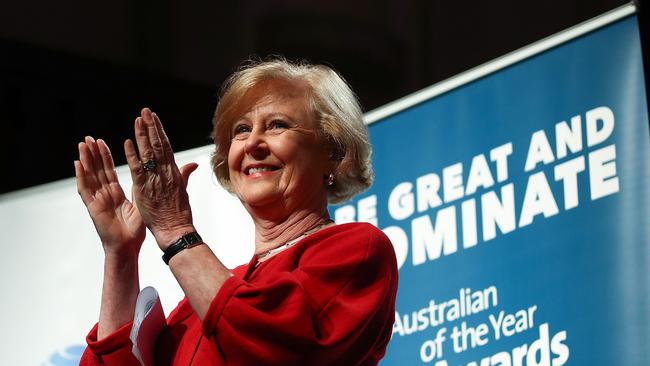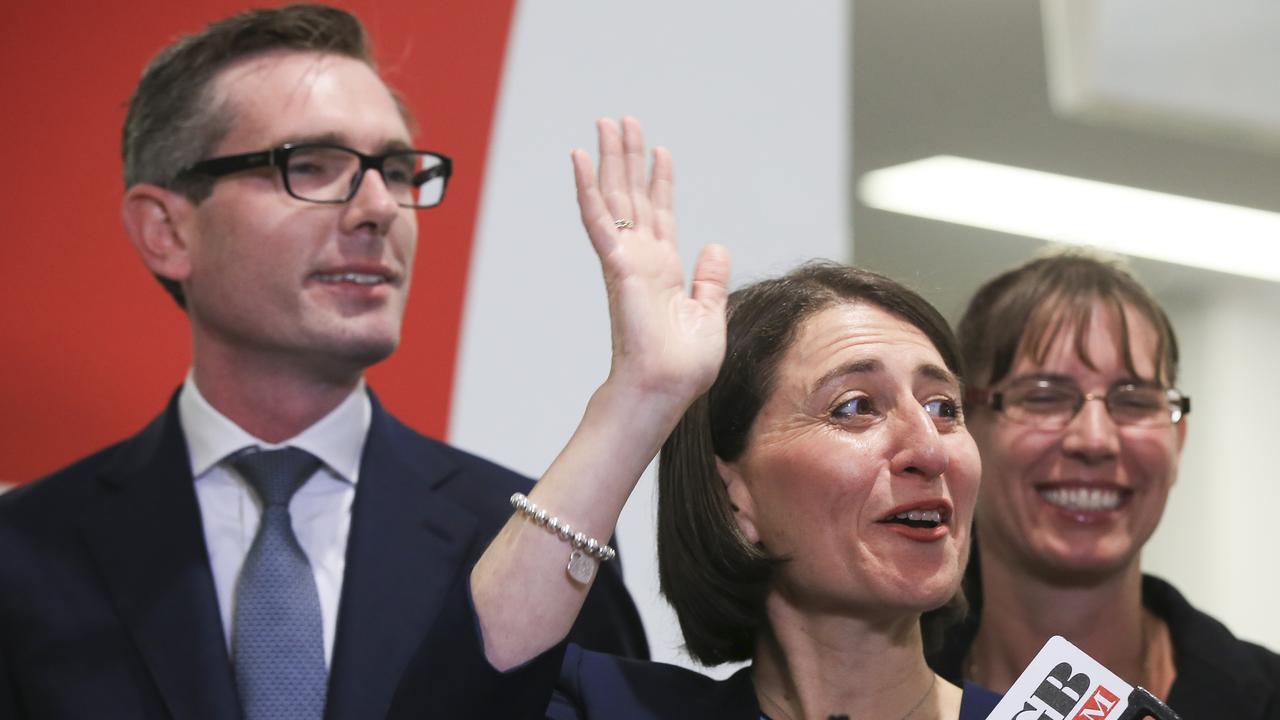
After all this time digging in her heels, hiding from tough questions, complaining about criticism and making herself out to be a martyr, Gillian Triggs finally has confessed to the pivotal mistake that has made her such a controversial figure.
Quietly, definitively and perhaps accidentally, the outgoing president of the Australian Human Rights Commission has admitted that she was wrong to delay her inquiry into children in detention while Labor was in government.
We have come to see a certain predictability about interviews granted by Professor Triggs: We know they will be given only to sympathetic journalists; contain contradictions of earlier statements; and most media will ignore newsworthy elements if they don’t reflect well on Professor Triggs or the way she has conducted herself as president of the AHRC.
And so it was last Friday when the president made herself available to the ABC (again) for an interview on Jane Hutcheon’s One Plus One program. Hutcheon asked about her childhood, career, family and how she ended up on the “wrong foot” with the Coalition government.
Hutcheon also asked whether there was anything Professor Triggs could have done better. And Triggs provided an answer — an admission — that justified and confirmed the criticism directed at her for the past three years and against which she and her political and activist supporters have railed.
Before we come to her answer let me remind you about Professor Trigg’s central failing; because most of the media, especially the ABC, continue to rewrite history on this. They pretend — deliberately and deceptively misinforming the public — that Professor Triggs raised the ire of the government because of what she reported about the trauma of children in detention.
This is demonstrably and factually incorrect. I first reported the government had lost faith in Professor Triggs in November 2014, months before she handed down her report — the issue was not her calling the inquiry but the fact she had delayed it.
“Under questioning, Professor Triggs revealed she had decided an inquiry was necessary early last year,” I reported after her disastrous Senate inquiry appearance, “but did not act until after the federal election because she feared it would be ‘highly-politicised’ and ‘very destructive’.”
In March the following year I wrote: “Why did Triggs let kids stew in detention for 18 months before starting her inquiry? That is a question to which she has provided more than half a dozen conflicting answers; and none of them make any sense.”
The Prime Minister Tony Abbott put it in emotive terms in February 2015. “Where was the human rights commission during the life of the former government when hundreds of people were drowning at sea?’’ he demanded.
Again, in December last year, I wrote about mischaracterisation of her failings. “Triggs’s problems did not start with criticism of the government over children in detention; on the contrary. She came under fire after she exposed her complicity in delaying investigations into this very issue. Eventually she began an inquiry into children in detention after the boats had been stopped, when the only movement of kids was out of detention.”
I could go on. There are many more examples. But there you have the clear and pivotal claim at the heart of all the controversy over the president and her tenure at the AHRC. So how did she respond to the tame Hutcheon question last week about what she might have done differently?
“I could have done it earlier,” she said, referring to the inquiry into children in detention.
Yes, at last. She could have done it earlier. She should have done it earlier. She has raised various contradictory, implausible and even demonstrably false reasons for delaying the inquiry. She has tied herself in knots trying to explain why she delayed the inquiry. Now she admits the initial decisions were mistakes.
“I could have done it earlier,” she told the ABC, “but I wanted to see if the behind-the-scenes efforts could work.”
According to previous statements Professor Triggs decided she needed to hold the inquiry soon after taking her position in July 2012 under Labor. Later that year and early the next she became further convinced of its urgency. But she discussed the issue with two Labor immigration ministers during 2013 (meetings she initially denied) and decided to delay the inquiry. The Coalition won office in September, she did not discuss the issue with the new government but she called the inquiry in February 2014 (after the boats had been stopped). This inexplicable scenario and Professor Triggs’s contorted attempts to explain it have completely poisoned her tenure as AHRC president.
“Perhaps now looking back I think it might have been wiser to have moved much earlier,” she told Hutcheon in last week’s One Plus One interview. “So while Labor,” Hutcheon interrupted for clarification. “Maybe even while Labor was still there,” said Professor Triggs.
You don’t say. Maybe the AHRC president should have called the inquiry within a year of deciding it was necessary, while asylum-seekers were still arriving, while children were moving into detention and when their numbers in detention were at record numbers, rather than after a change of government when the boats had been stopped and all the movement of children was out of detention. This is the central point.
And Triggs had finally conceded it.
But the ABC has not made a news story of this. The ABC has not reported this significant reversal and concession. The ABC has continued to portray Professor Triggs as an innocent victim, a martyr for the cause.
And just to continue the formula of her performances, the outgoing president couldn’t complete this confession without a contradiction. Perhaps realising the importance of what she had just admitted, Professor Triggs provided an addendum: “I did however observe that they (Labor) were moving the children out and it would have been rather foolish of me I think to have gone earlier.”
No Professor. Tragically, Labor was moving children into detention in record numbers. And you were right a few seconds earlier; it would have been much wiser to call your inquiry earlier, when you first thought it was urgent.




To join the conversation, please log in. Don't have an account? Register
Join the conversation, you are commenting as Logout